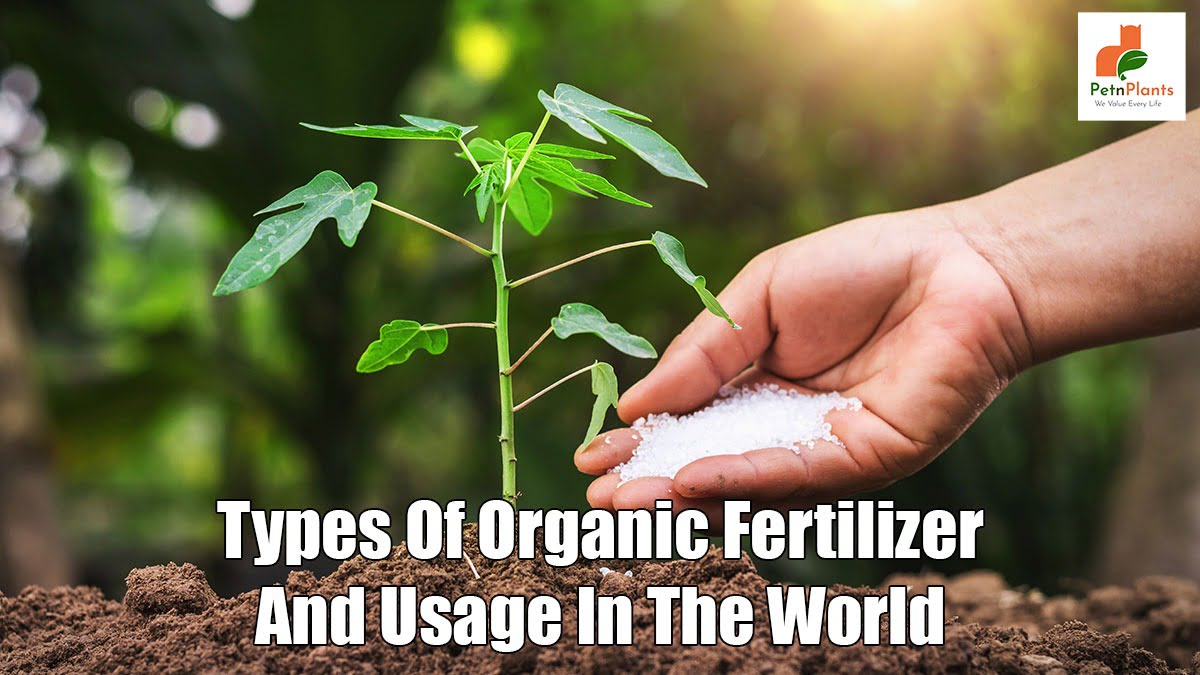How To
Latest
Pet Care
How to Groom Your Dog at Home with the Right Dog Grooming KitMarch 19, 2025
We Value Every Life

Organic gardening is becoming increasingly popular worldwide as people become more concerned with the environment and using chemicals in their gardens. This article will discuss the different types of organic fertilizers and their usage.
Organic fertilizers are products that are made from natural sources and do not contain any harmful chemicals. There are many organic fertilizers, but the three most common are compost, manure, and foliar (tree) fertilizer.
Compost is made of decomposed organic matter that has been put together in an appropriate form (usually chunks or pellets). The advantage of compost is that it is a natural source of nutrients for plants. Manure is composed of animal waste (including urine and feces) and can be used as a fertilizer if it is composted first. Manure should not be used on lawns because it can contain harmful chemicals. Foliar (tree) fertilizer is usually applied to the leaves of trees. It contains nitrogen, phosphorus, potassium, and zinc that the trees can use to grow.
Organic fertilizers can be used for various purposes, but some are better suited for specific plants than others. Here are a few types of organic fertilizers and when to use them:
When choosing the right organic fertilizer, there are a few things to consider. First, you’ll want to decide what type of fertilizer you need. There are three main types of organic fertilizers: natural, synthetic, and mineral.
Natural fertilizers are made from plants or animal products. Synthetic fertilizers are made from chemicals. Mineral fertilizers are made from rocks or other mineral sources.
Next, you’ll need to decide how much fertilizer to use. Generally, you’ll want to use about 1/3 of the fertilizer you would use for conventional gardening. Finally, store your organic fertilizer properly in a cool and dry place away from sunlight and heat.
Different types of organic fertilizers are available on the market today. Some are made from natural ingredients, while others are synthetically derived. Here is a look at each type and how it is used:
Organic fertilizers derived from natural ingredients include animal manure, compost, and plant tea. Animal manure is generally the most popular type of organic fertilizer because it contains high nutrients that can help plants grow. You can apply it to the soil or water in gardens or farms. Compost is made up of dead plants and their waste products and is also a great source of nutrients for plants. You can use it as a soil conditioner or add it to water to make irrigation easier. Plant tea is made from leaves, flowers, and other parts of plants that have been dried out. It contains essential nutrients for plant growth, and you can use it to add nitrogen, phosphorus, potassium, magnesium, and other minerals to the soil.
Synthetic organic fertilizers are also available on the market today. These fertilizers are made from chemical ingredients that are converted into nutrients when applied to the soil or water. Some common synthetic organic fertilizers include ammonium nitrate, urea nitrogen,
There are many types of organic fertilizers on the market, each with its benefits and drawbacks. For most practical purposes, any organic fertilizer high in nitrogen will work well in most gardens. Knowing which type of organic fertilizer to use depends on several factors, including the soil you have, the growing plants, and the amount of sunlight your garden receives. Experiment a bit to find what works best for your garden and climate.
0